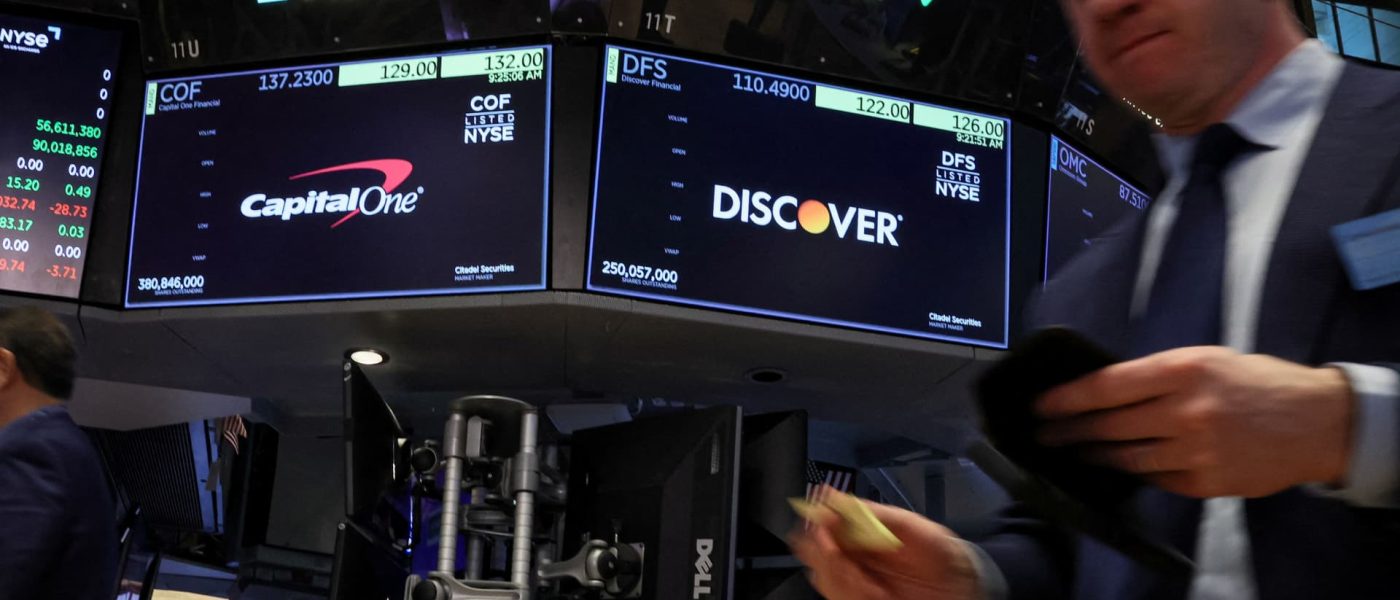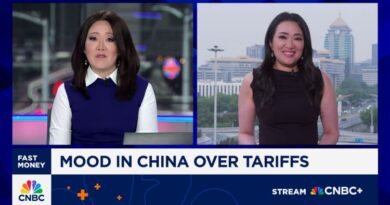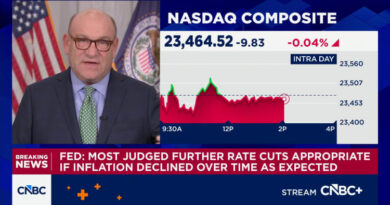What the Discover merger approval means for Capital One and 2 other
Capital One secured approvals from banking regulators Friday for its $35 billion acquisition of Discover Financial — a deal that analysts believe could have far-reaching benefits beyond just the Club holding. The news Wells Fargo research analysts said the greenlights from the Federal Reserve and the Office of the Comptroller of the Currency highlight a softer regulatory environment under the Trump administration. That bodes well for investment banking businesses in large U.S. banks such as fellow portfolio name Goldman Sachs . In a Sunday note, the analysts described the Capital One-Discovery merger as a “clearing event” for more bank deals that should likely “kick off further bank consolidation.” They added, “The approval is a down payment on the improved regulatory environment from the new administration.” Research analysts at Wells Fargo said the Discover acquisition will not only boost Capital One’s earnings potential but also provide “more than enough cushion to protect” it from an uncertain macroeconomic environment. The analysts reiterated their buy-equivalent rating on shares of Capital One, which said it has all the necessary approvals now and plans to close the Discover purchase on May 18. Capital One, which reports earnings after Tuesday’s closing bell, has three main segments: credit cards, consumer banking and commercial banking. It gets most of its revenue from credit cards. The merger development was not enough to boost financial stocks as concerns about President Donald Trump’s so-called reciprocal tariffs continue to rattle the market. Capital One shares, which shot up more than 5% shortly after Monday’s open, reversed lower and spent the afternoon around the flat line. Goldman was little changed after the open but saw declines accelerate as the S & P 500 sank more than 3%. COF 1Y mountain Capital One 1 year Big picture Coming into 2025, investors had high hopes that Trump’s more lenient stance on antitrust issues would lead to more mergers and acquisitions (M & A) and initial public offerings (IPOs). But with tariff and recession concerns gripping the market, deal activity has not rebounded as much as expected during the president’s first few months in office. Investment banks make money by offering M & A advisory services and IPO underwriting. Case in point: Heightened uncertainty about the outlook for the economy has disrupted plans for big-name IPOs like fintech firm Klarna and ticketing platform StubHub over the past month. Last week, Goldman also posted weaker-than-expected revenue for its investment banking division during the first quarter . CEO David Solomon acknowledged that dealmaking expectations have not panned out yet. “We are entering the second quarter with a markedly different operating environment than earlier this year,” Solomon said during the post-earnings conference call. Corporate clients are “concerned by the significant near-term and longer-term uncertainty that has constrained their ability to…
Read More: What the Discover merger approval means for Capital One and 2 other
A market is one of the many varieties of systems, institutions, procedures, social relations and infrastructures whereby parties engage in exchange. While parties may exchange goods and services by barter, most markets rely on sellers offering their goods or services (including labor power) in exchange for money from buyers.






